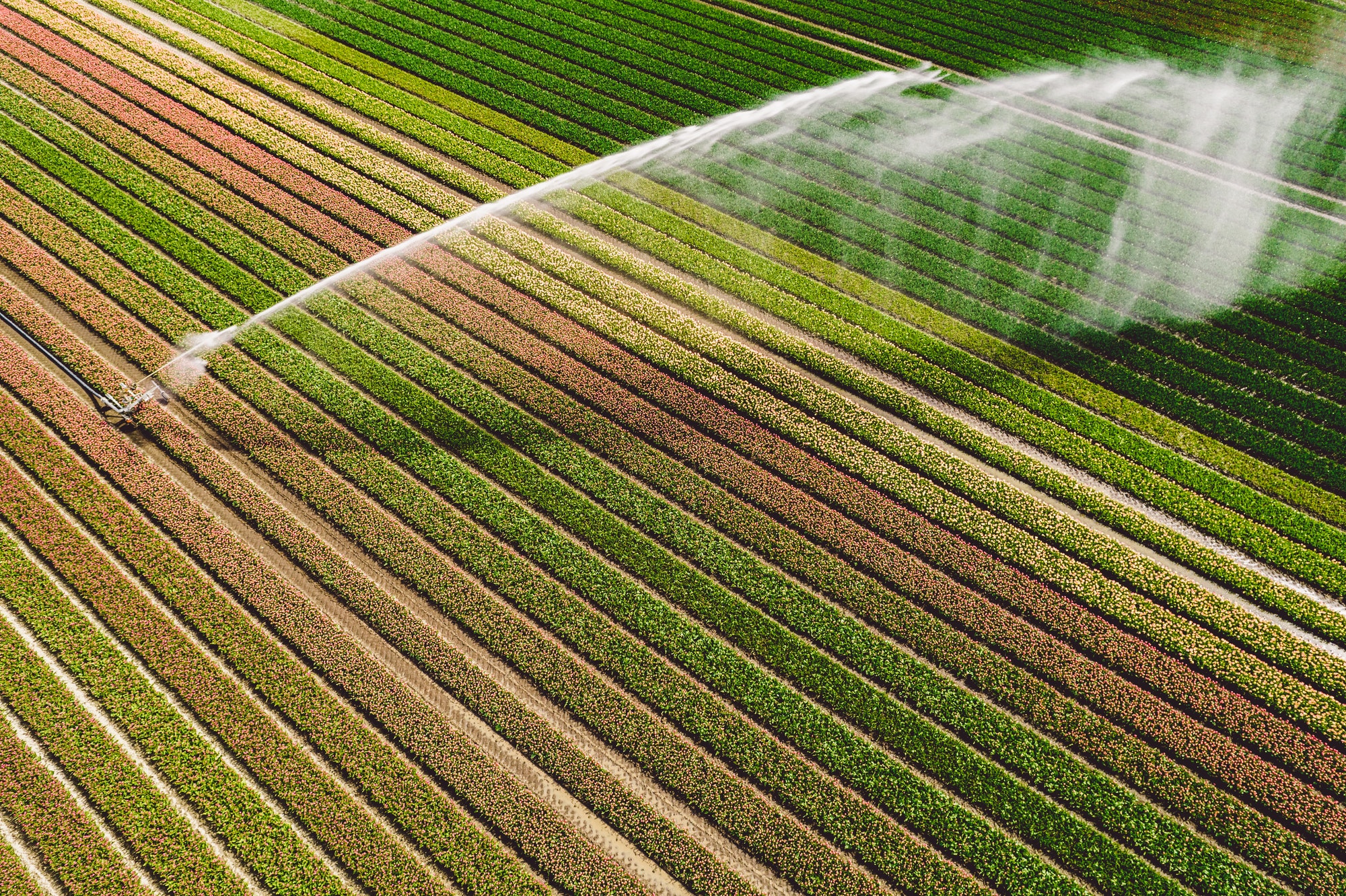In a world faced with climate change, unpredictable weather patterns, and increasing demand for food, the imperative of conserving water in agriculture is more important than ever. One of the most promising tools for achieving this goal is smart irrigation technology that utilizes weather data to provide precise, timely, and efficient water supply to crops. This article explores this topic in detail, discussing how smart irrigation technology employs weather data to optimize water use in agriculture.
The Basics of Smart Irrigation Systems
Smart irrigation systems represent a significant advancement in agricultural practices, marking a shift from traditional, time-based irrigation to a more precise, data-driven approach. These systems harness the power of technology to monitor soil conditions, weather patterns, and crop needs to determine the optimal amount of water necessary for plant growth.
Also read : What’s the Role of AI in Improving Diagnostic Precision for Rare Genetic Disorders?
Smart irrigation systems are composed of a network of sensors, controllers, and software. The sensors are embedded in the soil and measure various parameters such as soil moisture, temperature, and nutrient levels. These sensors send information to the controllers, which use this data to control the irrigation system, turning it on and off as necessary. The software, often cloud-based, allows farmers to monitor and adjust the system from any location, providing a real-time view of their farm’s irrigation needs and conditions.
The Role of Weather Data in Smart Irrigation
Accurate weather data is fundamental to the functioning of smart irrigation systems. This data not only provides information about current conditions but also helps predict future weather patterns. The systems integrate weather data in real-time, predicting the amount of rainfall and evapotranspiration (the process by which water is transferred from the land to the atmosphere by evaporation from the soil and other surfaces and by transpiration from plants).
Also to discover : How Can AI-Powered Cybersecurity Predict and Mitigate Insider Threat Risks?
Automated weather stations, connected to the irrigation system, collect data on various weather parameters such as rainfall, temperature, humidity, wind speed, and solar radiation. This data is combined with the soil moisture content reported by the sensors to provide a comprehensive picture of the farm’s watering needs.
Sensor-Based Data Collection and Management
The incorporation of sensor technology has revolutionized the field of agriculture. In smart irrigation systems, sensors play a crucial role in monitoring soil conditions and providing real-time data to the controllers.
Soil moisture sensors are widely used in these systems. They measure the amount of water present in the soil and send this data to the irrigation controllers. The controllers then use this information, alongside weather data, to determine the watering schedule. Notably, these sensors ensure that the plant receives the appropriate amount of water, preventing both overwatering and underwatering.
Besides soil moisture, other parameters like soil temperature, salinity, and nutrient content are also monitored by specialized sensors. These factors are crucial as they directly affect the plant’s health and growth.
The Importance of Controllers in Smart Irrigation
The role of controllers in smart irrigation systems is crucial. Controllers act as the brain of the irrigation system, receiving data from sensors and weather stations, and making decisions based on it.
Controllers, often programmable, use algorithms to process the data and determine when to start and stop the irrigation. They also regulate the amount of water dispensed, based on the weather forecast, soil conditions, and specific crop needs. This ensures efficient use of water, reducing wastage, and promoting optimal plant growth.
Moreover, advanced controllers can be managed remotely, allowing farmers to control the irrigation system from any location. This remote control feature, coupled with real-time notifications about the system’s status, ensures timely intervention in case of any discrepancies, contributing to improved water management.
The Impact of Smart Irrigation on Agriculture
Smart irrigation technology has had a significant impact on agricultural practices, introducing a new level of efficiency and precision. By utilizing weather data, these systems help farmers make informed decisions about irrigation, saving water, and improving crop yield.
Water conservation is one of the biggest benefits of these systems. By only using the necessary amount of water, based on weather and soil conditions, smart irrigation prevents water wastage. This is particularly important in regions where water is scarce or during times of drought.
Furthermore, smart irrigation systems contribute to improved crop health. By providing the right amount of water at the right time, these systems ensure that plants are not stressed due to over or under watering. This results in healthier plants and higher yields.
In conclusion, smart irrigation technology, with its integration of weather data, is playing a crucial role in the evolution of agricultural practices. With its profound benefits for water management, efficiency, and crop productivity, this technology offers a sustainable and efficient way forward for agriculture in the face of changing climatic conditions and increasing demand for food.
Advanced Features of Smart Irrigation Technology
Smart irrigation technology has advanced significantly over the past few years, offering a range of features that enhance its efficiency and effectiveness. These features provide farmers with unprecedented control over their irrigation systems, enabling them to optimize water usage and improve crop productivity.
One of the most impressive advancements in smart irrigation technology is predictive analytics. This feature uses historical weather data and algorithms to predict future weather conditions and adjust the irrigation schedule accordingly. It provides farmers with valuable insights on when to expect rainfall or dry spells, helping them plan their watering schedules more effectively and conserve water resources.
Another important feature of smart irrigation systems is the ability to integrate with other farm management systems. This integration connects various farm operations into a unified system, enabling farmers to monitor and control all aspects of their farm from a single platform. This not only simplifies farm management but also enhances efficiency by enabling coordinated decision-making across different operations.
Automated alerts and notifications are also a key feature of smart irrigation technology. These alerts notify farmers in real-time about any changes in soil moisture levels, weather conditions, or system performance. This allows for immediate intervention if necessary, preventing damage to crops and conserving water.
Despite these advanced features, the usability of smart irrigation systems is paramount. These systems often come with user-friendly interfaces and mobile apps, allowing farmers to manage their irrigation systems easily and conveniently. The ease of use ensures that farmers, regardless of their technological savviness, can benefit from smart irrigation technology.
The Future of Smart Irrigation Technology
In the face of climate change and water scarcity, the importance of smart irrigation technology is only set to increase. With continuous advancements and innovations, the future of this technology looks promising.
One potential development is the integration of artificial intelligence (AI) into smart irrigation systems. AI can enhance predictive analytics, making irrigation scheduling even more precise and efficient. It can also facilitate machine learning, enabling the system to adapt and improve its performance over time based on the data it collects.
Another potential advancement is the expansion of sensor technology. With developments in nanotechnology, more sophisticated and sensitive sensors could be developed. These sensors could measure a wider range of soil and weather parameters, providing even more accurate data for irrigation scheduling.
Moreover, as water management becomes a global concern, regulatory frameworks around water usage in agriculture may evolve. Smart irrigation systems, with their ability to accurately monitor and control water usage, will be instrumental in ensuring compliance with any future regulations.
In light of these prospects, it is clear that smart irrigation technology will continue to play a pivotal role in sustainable agriculture. By harnessing the power of technology and data, it will continue to help farmers conserve water, enhance crop yields, and navigate the challenges of a changing climate.
Conclusion
In conclusion, smart irrigation technology is revolutionizing the field of agriculture. By utilizing weather data and offering precise control over irrigation, this technology is facilitating significant water savings and improving crop yields. It represents a significant step forward in water management, particularly in the face of climate change and water scarcity.
The advanced features of smart irrigation systems, such as predictive analytics, system integration, and real-time alerts, offer farmers unprecedented control over their water usage. Furthermore, with the potential integration of AI and advancements in sensor technology, the future of smart irrigation looks promising.
As we navigate the challenges of climate change and increasing demand for food, smart irrigation technology will undoubtedly continue to play a vital role in sustainable agriculture. By optimizing water usage and promoting efficient farming practices, it offers a sustainable and effective solution for the future of agriculture.






